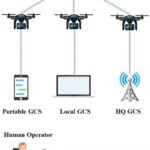In recent years, remote work has become increasingly popular, especially due to the COVID-19 pandemic. With more people working from home or other remote locations, the need for effective remote work tools has become more pressing.
Choosing the right remote work tools can make a huge difference in productivity, communication, and collaboration, so that’s why we will discuss various remote work tools and how to choose the best ones for you!
I. Communication Tools
Effective communication is crucial for remote teams. Communication tools provide a way for team members to stay connected, share information, and collaborate in real-time.
When choosing a communication tool, it’s important to consider factors such as ease of use, compatibility with other tools, and cost. Some tools offer more features than others, so it’s important to evaluate your team’s specific needs and choose a tool that meets those needs. Also, don’t forget to consider the security and privacy features of each tool to ensure that your team’s data is protected.
II. Collaboration Tools
Collaboration tools allow team members to work together on projects, share ideas, and track progress. These tools provide a central location for team members to collaborate, which can improve productivity and efficiency.
It’s important to take into consideration several factors when selecting a collaboration tool, such as ease of use, customization options, and compatibility with other tools. Your team’s specific needs should be evaluated, and a tool that meets those requirements should be chosen. Pricing and subscription options should also be considered to ensure that the tool fits within your budget. Some tools offer more flexibility than others, so it’s important to assess which tool will work best for your team.
III. Task Management Tools
Task management tools are essential for remote teams to stay organized and on top of their tasks since they provide a way to track progress, assign tasks, and set deadlines. Without a task management tool, it can be difficult to keep track of all the moving parts of a project.
When selecting a task software, consider the complexity of your projects and the size of your team. Some tools offer more advanced features for larger teams, while others are better suited for smaller projects. Next, think about the ease of use and accessibility of the tool. Can team members easily access the tool from anywhere, and is the interface intuitive and easy to navigate?
IV. Time Tracking Tools
Time tracking tools are important for remote teams to monitor their work hours, billable hours, and productivity. These tools provide a way to track time spent on specific tasks, projects, and clients which can be used for project management, billing, and performance evaluation.
When selecting a time-tracking tool, it’s important to consider factors such as ease of use, accuracy, and reporting capabilities. We recommend implementing a software with more advanced features such as automatic time tracking, mobile access, and integration with other tools. It’s also important to consider the security and privacy features of each tool to ensure that your team’s data is protected.
V. Cybersecurity Tools
Having the proper cybersecurity tools in place is crucial for remote teams to safeguard confidential data and thwart cyber threats since the shift towards remote work has increased the potential risks to a company’s cybersecurity, underscoring the importance of these tools. To choose the most effective cybersecurity tool, it is essential to assess its capabilities in areas such as data encryption, access controls, and threat detection. Some tools offer more sophisticated functionalities, such as network monitoring, intrusion prevention, and two-factor authentication.








